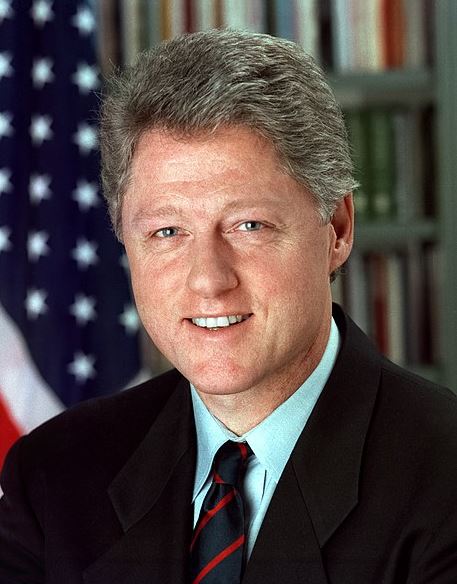The largest political scandals of the 1990s are the subject of the article. It emphasizes how several high-profile scandals that had a big influence on politics and society characterized the decade. The purpose of this article is to evaluate the origins, effects, and long-term effects of historical scandals as well as their applicability to current political debates. This aims to give insights into the complicated interplay between power, ethics, and public perception in politics by examining past crises and drawing lessons that are still applicable today.
Bill Clinton, Gennifer Flowers and Monica Lewinsky

Rumors of extramarital relationships from his earlier days followed Clinton during his 1992 presidential campaign. When Arkansas state employee Flowers claimed that she and Clinton had a 12-year relationship, those accusations gained traction in the tabloids. Hillary and Bill both denied having an affair. Flowers, though, eventually admitted under oath that the relationship existed. America first learned about Monica Lewinsky and her alleged sexual encounter with the president six years later, when a legal dispute concerning a second alleged Clinton affair was pending. President Clinton first denied the relationship, but subsequently admitted to the public that he had “a relationship with Miss Lewinsky that was not appropriate.” The president lied, which prompted the Senate to hold the first impeachment hearing in more than 130 years. One of the most turbulent periods in American history came to a conclusion when the Senate decided to exonerate President Clinton. Donald Trump declared the Monica Lewinsky scandal to be “fair game” against Hillary Clinton in the 2016 presidential election.
Corazon Aquino
Corazon Aquino served as president of the Philippines from 1986 to 1992, the first woman to hold that office. Additionally, she was Asia’s first female president. She is renowned for her groundbreaking work in bringing democracy back to the Philippines and steering it away from Ferdinand Marcos’ totalitarian leadership. Maria Corazon Cojuangco was her birth name. She earned her degree from Mount St. Vincent College in New York City in 1954, married politician Benigno Aquino Jr. shortly after, and supported her husband in his political ambitions.
After her husband’s murder in 1983, Corazon Aquino campaigned for president in 1986, assuming his role as a key actor in the movement against Ferdinand Marcos. Despite the fact that Marcos was widely believed to have won, Aquino and her party contested the election results, and the Philippine military recognized Aquino as the legitimate president. Aquino started drafting the nation’s new constitution and restoring a bicameral Congress as soon as he became an office. She concentrated on enforcing civil freedoms and human rights as well as trying to stabilize the economy throughout her term as president. In order to set an example for future presidents and allow for shifts in power while highlighting the democratic choice of the people, Aquino opted not to run for reelection in 1992.
Antonio Sanchez
In Calauan, Laguna, the Philippines, on June 28, 1993, Eileen Sarmenta and Allan Gomez were killed. Police officers and the late Antonio Sanchez, the previous mayor of Calauan, who was prosecuted and found guilty in the case, were involved. Sanchez was charged with organizing the kidnapping of Sarmenta and her friend, Gomez, as well as the following rape, torture, and murder of Sarmenta and Gomez. Both victims were University of the Philippines, Los Baos students.
Fidel V. Ramos
In the PEA-Amari transaction, Ramos was charged with corruption. In the contentious arrangement, 158 hectares (390 acres) of Manila Bay’s in the Philippines reclaimed land were purchased with the intention of developing them into “Freedom Islands.” As part of the Manila Bay Master Development Plan (MBMDP) of the Ramos administration, the agreement was made in April 1995. More than 3,000 fishing and coastal families were uprooted by the PEA-Amari deal and other projects in Manila Bay to make way for what Pambansang Lakas ng Kilusang Mamamalakaya ng Pilipinas (Pamalakaya) activists called “an immoral, illegal, and grossly unconstitutional state venture.” Ramos refuted claims made by opposition parties that the PEA-Amari agreement was reached to favor members of the Lakas-NUCD government. The government stood to lose billions of pesos from the sale of recovered lands to Amari, so ex-solicitor General Francisco Chavez filed a suit to invalidate the PEA-Amari agreement.
Joseph Ejercito Estrada
Subic Bay leadership dispute
After winning the 1998 presidential election in the Philippines, Estrada issued Administrative Order No. 1, which ordered Richard Gordon to resign as chairman of the Subic Bay Metropolitan Authority (SBMA), in May of that year. Estrada then named Felicito Payumo, a Bataan congressman and Gordon’s opponent, as the new chairman. The Ramos administration’s re-appointment of Gordon gave him civil service protection, according to Gordon, who refused to resign. It was difficult to remove Gordon because he barricaded the gates of SBMA with hundreds of volunteers and paid security guards. Due to his defiance of an executive order, Gordon was then labeled a tyrant. The Showdown at Subic is a story about the subject that aroused attention in local and international media.
Textbook scam intervention
In 1998, Estrada allegedly appointed a cousin, Cecilia de Castro, as a presidential assistant. In the aftermath of the 1998 textbook fraud, the President denied knowing her. Later, the President got involved in the scam’s inquiry.
George H. W. Bush
During his election campaign, President George H. W. Bush (R) said he was “out of the loop” and denied knowing anything about the Iran-Contra scandal. But according to his own journals from the time, “I’m one of the few people that know fully the details…” He consistently dodged disclosure of this information to the investigators throughout the probe, which helped him win the election. (1988)
Conclusion
In conclusion, the 1990s political scandals had a significant impact on the political climate of the period and are still being felt now. We must be aware of the lessons learned from the past as we navigate current political conversations and debates and work to preserve the greatest moral standards in our political leaders.